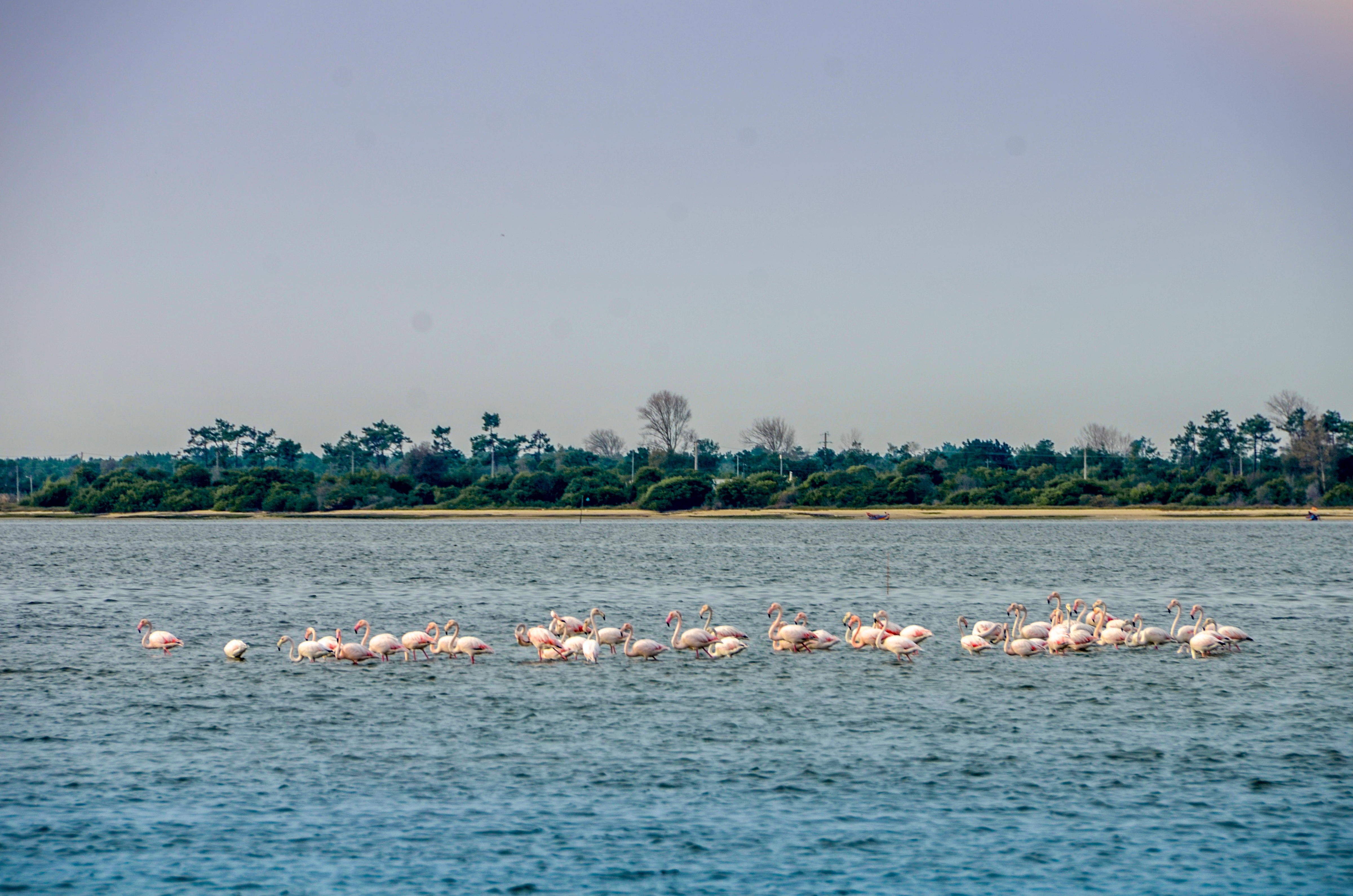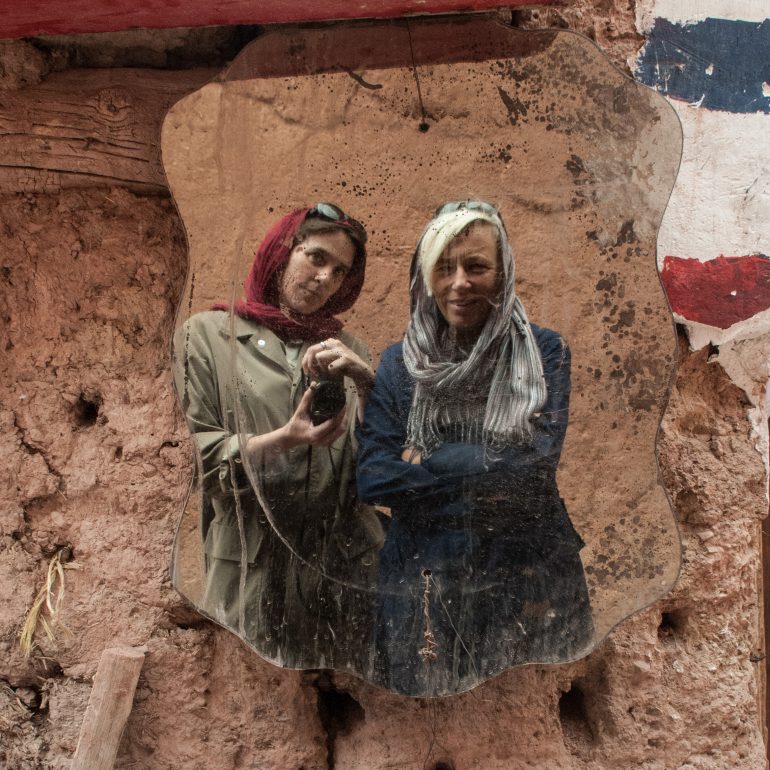Eleven years ago, Gaea & Trui drove on their motorcycle from the front door to the Stan countries, Yemen… And back. A truthful and pleasant book came out of it: Meisjes, Motoren en Muslims. Up to this day, they love to go to schools or the local third age groups to talk about the sense of adventure in an overregulated & canned world, about the search for frontiers (your own or those from Iran & Tadjikistan), or about The Other for whom we all seem to be frightened of these days. And let it be precisely this Other who attracts both women to travel to the East because with whatever they are doing; these girls always keep the sun in their scope. I am blessed to have them all for myself at the kitchen table for a whole morning. Sometimes I ask a question, but most of the time I listen to their stories & insights.
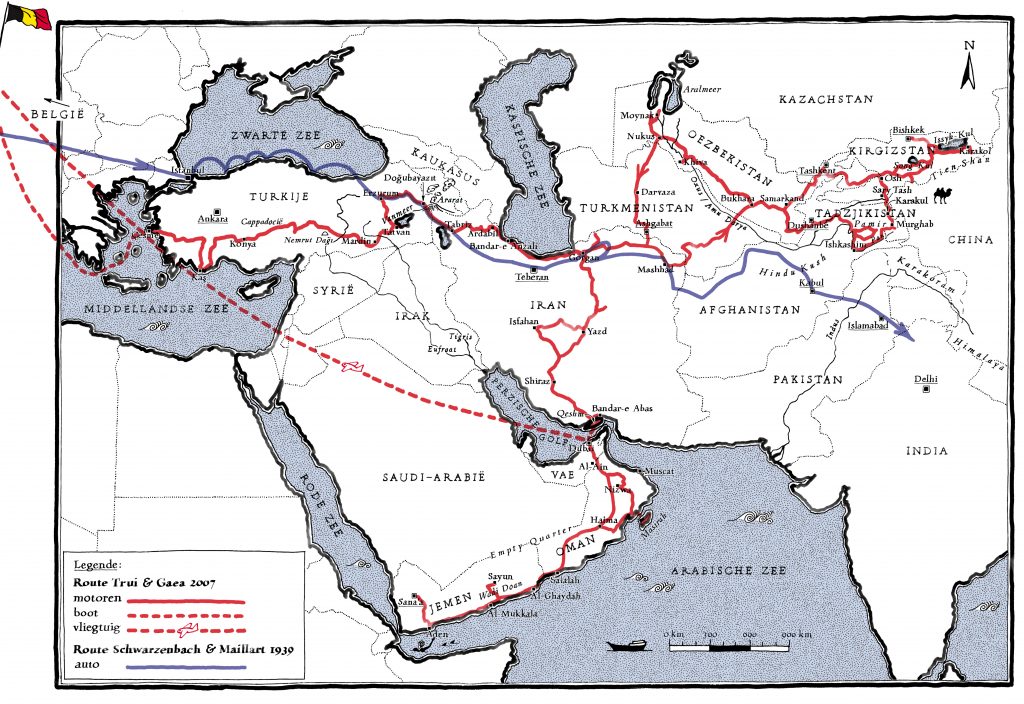
Hipster coffee in Uzbekistan
“I doze off here. It became very normal to have running water from the tap or to go and grab a coffee at the corner quickly. Then I grab myself by the scruff of the neck and think: Do something. Preferably something which scares you a little.” Trui is talking, and with something, she means travelling. Being on the road. Which is not the same as tourism.
Gaea completes my thoughts: “Tourism is visiting a country and expecting all the comfort of home. Like drinking lattes in Central Uzbekistan. Travelling means, adapting yourself with an open mind to the culture of the local community.”
“But we aren’t a part of that tourism culture ourselves? I don’t want to claim that I am a better traveller than the rest.”
“Of course it’s twofold. I’ll be craving for a hipster coffee as well after spending three months in the highlands. Not to mention our colonial reflex we’ll need to suppress so we don’t deny those Uzbekistani their latte. But paying a lot of money with an Adventure Truck equipped with GPS & Wifi while sleeping in luxurious tents is not travelling. It’s tourism.”
“It’s a fact that things changed with the arrival of Wifi. I was backpacking in Ladakh in ’89, and I think only ten foreigners were travelling there. That was a incredible trip. But when I returned in 2002, it was like a whole other ball game.”
“Theme Park Himalaya,” Gaea says.
“We can make a challenge out of it to search for the missing roads on Google Maps? I found myself at the Iranian side of the Turkmenistan border in 2014, on an asphalt road of about 100 km long. You couldn’t find it online.”
“We recently discovered that money doesn’t make us happy, but you cannot deny them the chance to find it out for themselves…”
“But those pristine zones shrink fast, while the community to search for those remote zones grows. In cute vans or organised. And then we have a second problem: we, travellers used to bring the news & stories. But last summer in Kyrgyzstan our rooms were quickly paid, and people immediately turned to their tablets again. Communication was gone because of a lack of interest in each other.”
Trui shrugs her shoulders. “Hmm, for us it’s romantic to see those shepherds warming yak milk during winter while telling stories around a campfire, but that’s also a part of that colonial reflex.”
“And with the internet, capitalism enters. Broadly speaking, now they can milk tourists instead of goats. Which probably creates an area of tension among the local community itself. The one who is most skilful with social media or who can buy houses gets the most visitors. And in the meantime, they realize that we are there to de-stress around the campfire, which can be romantic for them as well… Until a 42-year-old relative dies of kidney failure because there is no such thing as social security in those countries.”
“Okay, but sometimes those countries don’t make the same mistakes as us and jump forward by creating laws that e.g. ban single used plastic. But that happens not often, unfortunately.
“We recently discovered that money doesn’t make us happy, but you cannot deny them the chance to find it out for themselves…”
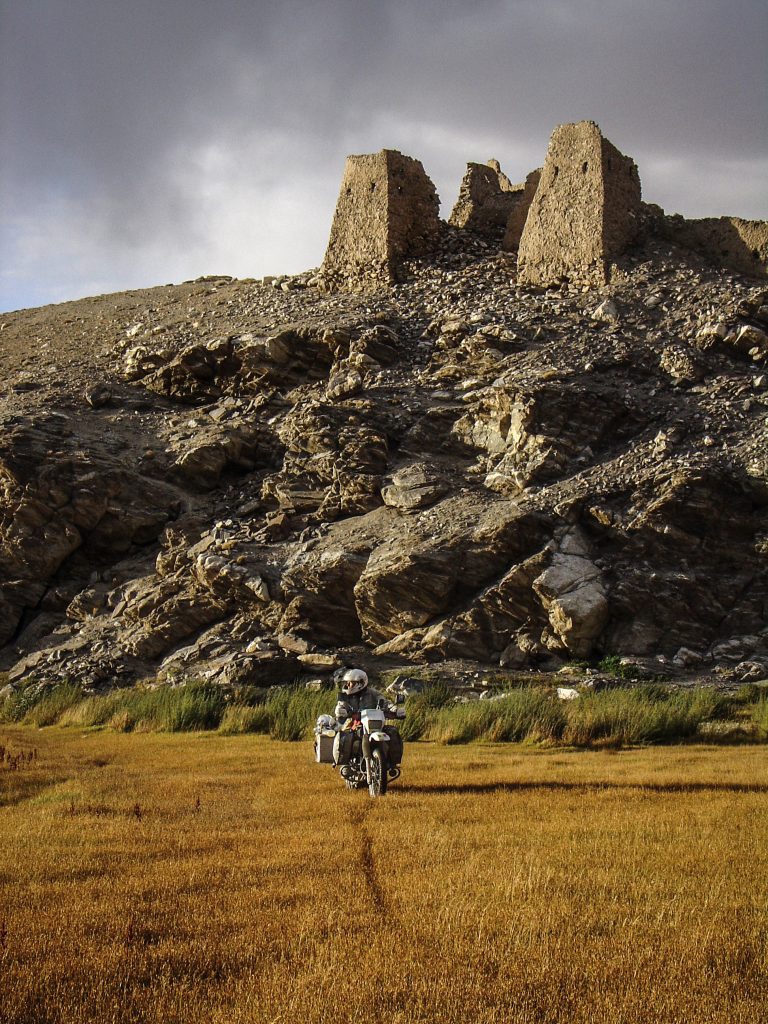
The search for a human pace
I travelled solo with my motorcycle to Portugal (pussy) and by train from Porto to Ghent (eco pussy) and realised how much good this is for my mental state. How did you experience it to travel slowly from point A to B?
Trui starts: “ The mind travels by foot is a well know saying. Adapting slowly to a landscape, language or architecture & food: that’s what makes travelling so exciting. Take a step aside from the beaten path and you’ll still find a lot of remotenesses. But also by motorcycle, you’ll have fault lines. Suddenly you are driving from a smooth highway into a sandbox like at the border between Iran & Pakistan. Which is okay, because that’s a part of travelling.”
“Or fault lines between regimes.”
“Or in a country like East- and West Kurdistan. Travelling from Italy to Turkey to Iran is a remarkable sensation. That’s going from West to East to West.
“Travelling over land, or just travelling, for me, is going back to a place where time progresses slowly. More logical. In Europe, it’s hard to keep up on human pace when everything around you goes ten times faster.”
“A place with time for coffee, tea and unexpected meetings. That’s not a romantic but a very realistic way of living. We all crave for that rhythm.”
“Those encounters are quite a crucial part of the trip but again, it’s twofold because those men who are bored to death on their highlands will crave for something else.”
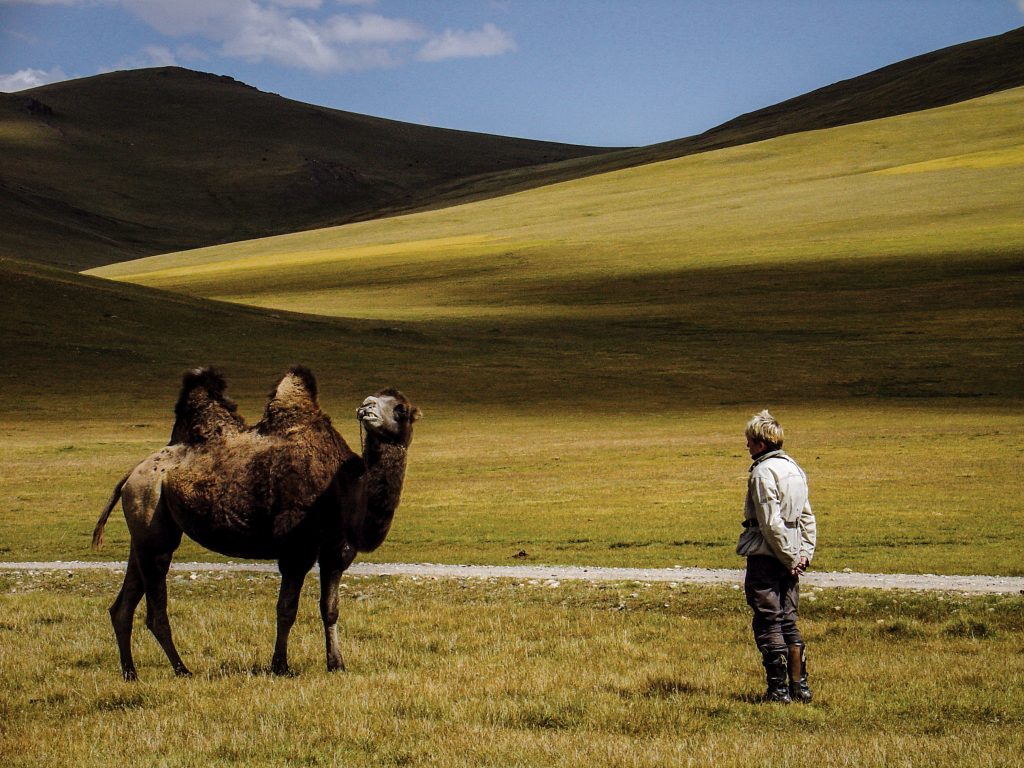
“Do you know what travelling makes so special?” Trui asks, “That’s your changing personality. You evolve fast. When I came back from one year in Finland when I was Eighteen, a lot of friendships diluted because I moved on.”
“Traveling is like a condensed growth curve. That is why I like to travel by two. You suddenly start to see things from another perspective so having a witness around to share that experience is good because back home it is difficult to explain what you went through. People at home evolve slower, and you still recognise them, but they don’t necessarily see you for the person you became.”
Trui nods. “Because the frame of reference is gone. And also, travelling with two is more fun because shared joy is double joy and shared sorrow is half sorrow.”
“You quickly arrive at what’s important. Having a choice of 20 kinds of cereal doesn’t matter. Or that the mechanic let you wait for 13 months before he fixes your bike. It’s just stuff. You know, I realise that especially on those wide open spaces, as if they give you, literally, the space to think. That’s when I say: ‘Fuck it all, I am happy. Also because your brains don’t receive 45 impulses at the same time. It’s a space where you can relate only to yourself, and that’s how you should evaluate yourself. That is why I struggle with Europe: you relate to the media, read the daily news and think: that’s unjust, that’s not right… And I also feel like I am the one who needs to fix it (smiles), which is not a healthy life. At some point, there is even a growing dissatisfaction with myself. Then, a mountain that doesn’t give a fuck about who you are is more exciting to relate to.”
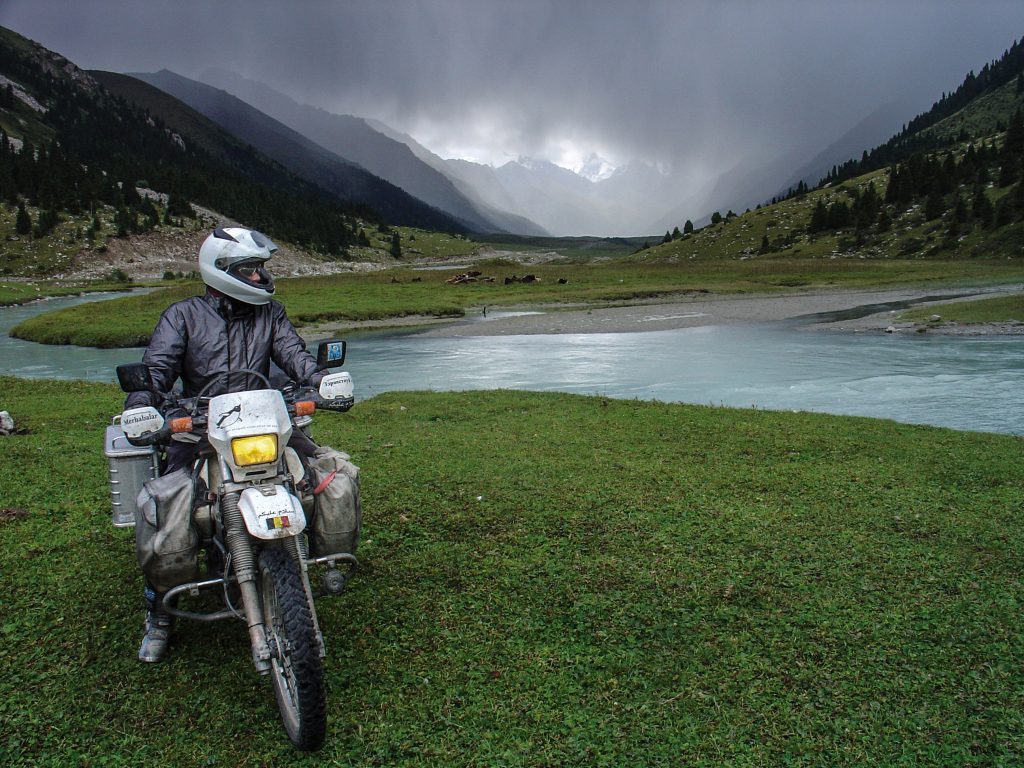
Why not moving abroad?
“The problem is that the whole world is riding on that negative wave of corruption, polarisation, political tensions and terrorism… When I was young, I wanted to live abroad as far as possible. Now, I ‘m not so sure. We have social security. Ideally, I want to live abroad 70 % and 30 % in Belgium.”
“In ten years social security is gone forever,” Gaea says.
“Yes, but with my white passport I can travel anywhere so why move?”
“Then it becomes like luxury commuting. Twofold again, because I want to realise something there. The only problem for me is that I need cultural input. No idea if there is an opera in Bisjkek?”
“What I would like is staying one year in place to dig some deeper into local culture, to see how minorities get treated for example.”
“That’s another issue, If I were straight, I would have left a long time ago. But two lesbians trying to integrate in Bulgaria until the community knocks on your door to help to fix your bike or to bring freshly baked bread, which means you’ll have to explain you make a living with writing opera… There’s a big chance you get punched in the face before the new moon pops up. In those countries, you have a different ethical framework.”
“While, when you travel, you don’t notice that framework, it’s like a limbo.”
“Right. And I know, that if I start digging in local corruption, I will become as wired as in Belgium.”
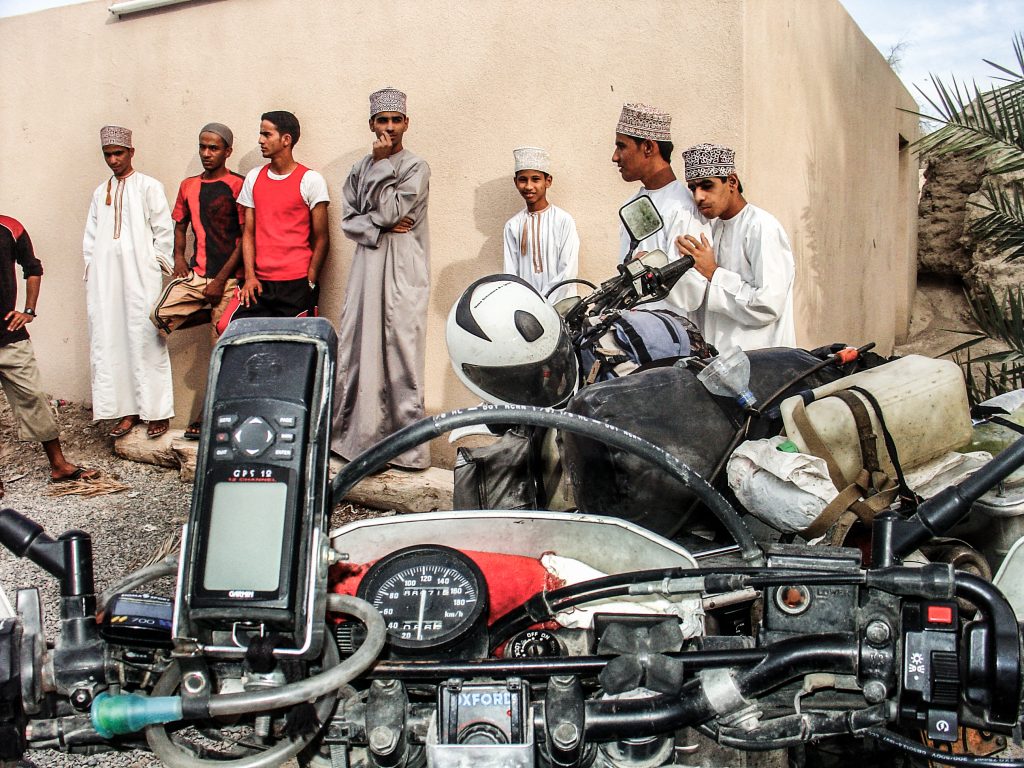
And what about the other, from whom everybody seems to be scared of? The people you met while travelling and probably became refugees, trying to escape the violence. How do they make things right?
“The proof is out there,” Gaea says, “During the whole trip we never experienced violence or bad situations. 99% of people are good, and you can see this in small things such as a free extra bread or in big things such as those armed men in Yemen who took a whole day to help us find fittings for our motorcycles in the bazaar. In the meantime, they gave us drinks and food. Us, in our greasy outfit and them, in their clean, white djellaba’s. They enjoyed those two female mechanics. Like I said: it’s hard to explain this sensation, once home.”
Trui relativises: “You’re still a woman travelling through a homosocial society so there keeps on being a certain awareness, a certain area of tension every woman can relate to.”
Is it a conscient choice not to give in to fear? And to trust?
“Otherwise you don’t leave,” Gaea says firmly.
“You have to develop a certain positivity that tells you that everything is going to be just fine.”
“A lot has to do with attitude. You get back what you radiate. The bad moments are those when you are tired or sick and have to move on. If you bite, you get bitten.”
I love to travel through Muslim countries. We don’t know that level of hospitality.
Gaea explains: “Hospitality is based on mutual curiosity. Like those men in the bazaar. They were when they saw us fixing our bikes, travelling for one week with a group of French tourists and no one bothered to ask for their name or how they were doing while we immediately had a nice conversation with them. You receive the good vibes.”
“And a lot of tea. Travelling as a woman has its perks as well.”
The colonial reflex & ambiguity of the white traveller pops up during this whole conversation. What did you- a white, highly educated & western tourist that easily puts itself above the other, learn from them?
Gaea starts: “The first time I realized we are not better, is when an eighteen-year-old in Finland survived to live at -20 degrees. He gave me twenty minutes in those circumstances. And he is right. In basic circumstances, we are a helpless species. And secondly, I learned this kind of total acceptance. We are so used to be in control all the time. When that is gone, we just go mad.”
“Or get stressed or frightened.”
“While Africans are like: ‘Le train Madame? Peut-être aujourd’hui, peut-être demain.’ They are already happy when he arrives.”
“Sure, but in Congo, that train doesn’t even arrive. Congo that’s terrible.”
“Sure, but I am talking about our urge for control. We stand in the demanding position of life, while they have a more grateful way of seeing things. Okay, this also because of certain powerlessness but for us, we are like toddlers: I want so I get.”
“What I love is the simple wisdom you sometimes get crushed by,” Trui says, “Like that one time I was trying to get out of Isfahan, which was like impossible because of all the one-way streets and horrible traffic. We were expected in a town somewhere in the East, and when I asked for instructions to a man, he just replied: ‘Keep the sunshine in your eyes, ma’am!” Awesome!”
“Or that veiled woman in Yemen: “Aah, so you think you I cannot show you how I feel because you don’t see my face? I will show you ten expression in two minutes. Trust me; you could easily see the difference between desire & anger! She found us limited.”
“She was laughing in our faces, haha!”
“These kinds of situations are happening all the time. Like that cop in Oman with his FN gun..”
“Or those teenage girls in Tajikistan who grabbed you boobs all of a sudden!”
“And that Bulgarian pitbull who gave us a ride and teas and told us he got in jail in Brussels for more than one year. ‘I love Belgium,’ he said, haha!”
“And those young bomb-disposal experts at the Afghan border..”
“Or that Kirgizian woman who was conversating with you when she decided to take a dump on the side of the road…”
“Hi-la-rious! Because suddenly you get the context. That’s what travelling is about.”
Thanks, girls, you are good role models!
Sophie.
Do you want to know more about Trui her creative activities/ graphic design/ photography? Click here.
You wonder what kind of opera’s or what beautiful books Gaea wrote? Click here.
Do you want to book a lecture? Here.
* Quote from their book. All pictures ©Trui Hanoulle.
